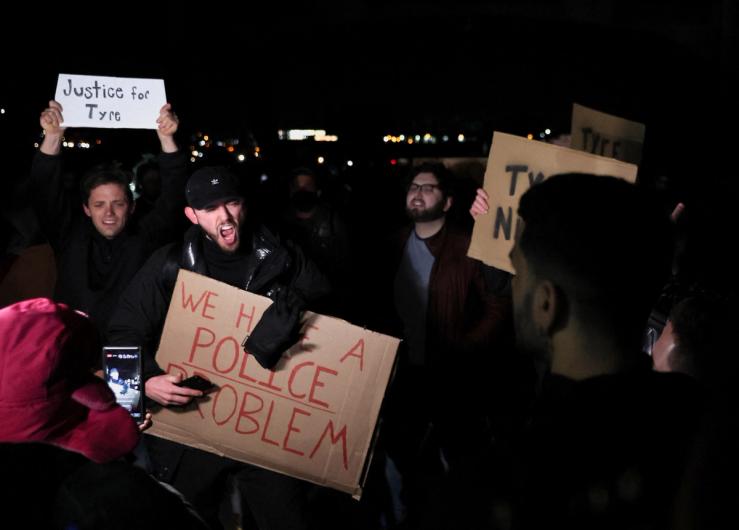The News
Video footage from the violent and fatal beating of 29-year-old Tyre Nichols by five police officers in Memphis, Tennessee, was released late last week — sparking protests in at least a dozen cities, and prompting the disbandment of the special “high-crime” unit responsible for Nichols’ death.
Around the world, journalists commented on how the fatal beating highlighted how America continues to grapple with race and policing.

The View From Nigeria
In a column published in Opinion Nigeria, John Egbeazien Oshodi, an America-based police and prison scientist and psychologist whose father served in the Nigeria police, argued that the fatal beating of Nichols by Black police officers challenges the U.S’s traditional narrative of “white cops killed unarmed black man”. It appears that the incident is, rather, a symptom of “internalized racism,” he argued.
“Unlike white racism, also known as white racial domination over those racialized as non-white and likened to white supremacy, race-based internalization or internalized racism has not received systematic attention in the policing of non-white neighborhoods,” Oshodi wrote. “In fact, internalized racism is rarely discussed in law enforcement affairs.”
The View From China
The Global Times, the English-language paper of China’s state-controlled People’s Daily, spoke with several professors and sociologists who criticized U.S. President Joe Biden for making “little progress in solving racism” since he was elected into office.
“The fatal Memphis police beating, which led to the death of 29-year-old Black man Tyre Nichols, has not only further unstitched the already loose fabric of US society, it weakens its internal cohesion and heralds a culmination of the racial conflicts of the last two years,” the staff of the Global Times wrote.
The paper argued that it will cost Biden Black votes in the 2024 presidential elections, and claimed, without evidence, that racial conflicts were likely to “climax in the next half of this year up to the election period in late 2024.”
The View From Canada
In a column for the Global and Mail, David Shribman, the executive editor of the Pittsburgh Post-Gazette, wrote that Nichols’ death “underlines the complexities of modern police issues even as it illuminates important conclusions about contemporary American life that are ugly, unsettling...and unavoidable.”
He argued that police brutality is not an isolated phenomenon –– highlighting that the crisis in U.S. police departments is not only racial, but cultural as well.
The View From the U.K.
In a column for the politically conservative British magazine, The Spectator, British author and cultural commentator James Innes-Smith, wrote that the response to Nichols’ death from the Black Lives Matter movement has been muted and that the group has “kept largely shtum” about the incident.
“Nichols’ death is a tragedy – and it shows again why the status quo of law enforcement in the US cannot go on. It’s a pity that BLM – and other campaigning organisations that are usually keen to shout from the rooftops – are not speaking out more about this case,” Innes-Smith wrote.

